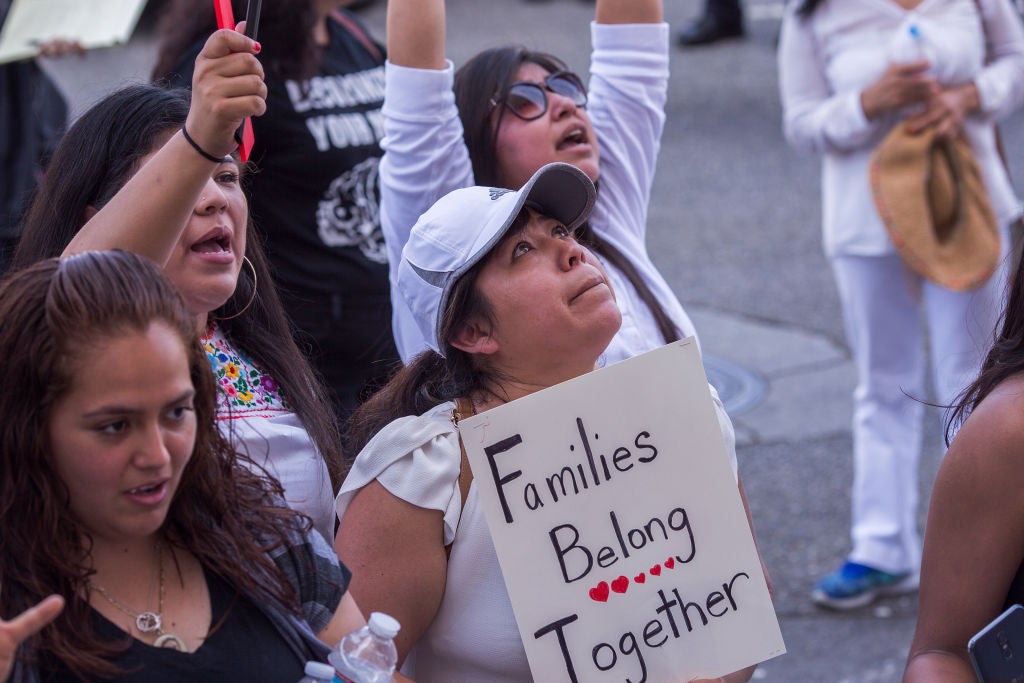Vance refuses to say whether Trump’s plans to expel millions of migrants would mean separating families

Support truly
independent journalism
Our mission is to deliver unbiased, fact-based reporting that holds power to account and exposes the truth.
Whether $5 or $50, every contribution counts.
Support us to deliver journalism without an agenda.

JD Vance evaded giving specifics regarding one of the Trump administration’s greatest controversies on Sunday as he faced questions about immigration, border security, and the former president’s plan to deport hundreds of thousands — if not millions — of undocumented immigrants.
Vance sat down for an extended interview with NBC’s Kristen Welker on Meet the Press and took a line of questioning about one of Donald Trump’s main 2024 campaign promises: to enact the “largest deportation operation in American history”, per his campaign’s own description. What that represents in reality would be a massive operation requiring significant federal funding, state cooperation, and could result in serious repercussions to communities around the country.
But when asked by Welker a question with a seemingly obvious answer — whether the concept of separating family units, including young children from their parents, would be revived under a second Trump term — Vance could not answer.
Instead, he argued that he believed “families are currently being separated” and added that “you’re certainly going to have to deport some people in this country”. But he argued that a Trump administration would prioritize violent criminals for deportation.
“Those people need to be deported,” said the GOP vice presidential nominee. “That’s where you focus federal resources.”
Vance’s comment about families “currently” being separated under the Biden administration digs at a grey area in immigration policy which has rankled progressives over the past three years. To be clear: immigration authorities under Biden are not separating families from young children, as was introduced during Trump’s term in office, when family units are detained by border security agents. That policy, spearheaded by the Department of Homeland Security (DHS) under Trump as designed by White House aides such as Stephen Miller, led to the infamous photos of “kids in cages” as children ranging in age from teenagers to extremely young toddlers were kept in group pens at detention facilities away from their parents for days and sometimes weeks at a time. The policy was described as highly cruel and inhumane by its critics.
Under the Biden administration, some parents of adult children have been separated from them after crossing the border illegally, and have continued separating some extended family members and others who do not fit in narrow definitions of a “family unit” under the policies.

Trump himself doubled down on his plan to engineer the deportation of hundreds of thousands of people in an interview at the border with NBC News this past week, arguing that the undocumented immigrants he planned to deport would end up costing the US government more if they remained in the country. Immigration advocates have disputed this, noting that immigrants alone contributed billions of dollars per year in taxes.
“It’ll cost trillions of dollars to keep these people, and I’m talking about in particular starting with the criminals,” Trump said to NBC. “That’s costing us a lot more than deporting. But we have no choice, regardless, we have no choice. We’re going to have to deport.”
And Vance, in an interview with ABC News earlier in August, backed up Trump on the target figure for their plan: one million deportations, while hinting that their eventual goal could be much higher.
“You start with what’s achievable,” he said. “You cannot have a border unless you’re willing to deport some people. I think it’s interesting that people focus on, well, how do you deport 18 million people? Let’s start with 1 million.”




